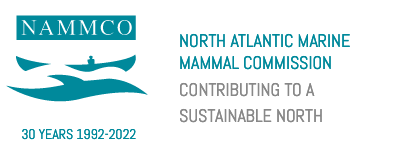Scientific Working Groups
The Scientific Committee organises Working Groups (WGs) to address specific issues as needed. In addition to members of the Scientific Committee, external experts are invited to chair and/or participate in these specialist working groups in order to acquire the best possible knowledge. This involvement of participants external to NAMMCO widens and strengthens the expertise available for the WG and supports transparency. Over sixty Working Group meetings have been held since NAMMCO’s beginning in 1992.
Reports from these WGs can be found sorted by year or by themes.
Joint Working Groups
The Scientific Committee also works with other organisations on matters of mutual scientific interest. The Scientific Committee has a Joint Scientific Working Group with the Canada and Greenland Joint Commission on Narwhal and Beluga (JCNB). The working group on harp and hooded seals is co-convened by ICES, NAFO and NAMMCO. In addition, in March 2006 the Scientific Committee held a joint working group meeting with the IWC Scientific Committee on fin whales. In 2018 the Scientific Committee organised a workshop on harbour porpoises with the Norwegian Institute for Marine Research.
Upcoming Working Group meetings
Upcoming meetings of Working Groups are listed on our Calendar.
Standing and Ad hoc Working Groups with General Aims and Terms of Reference
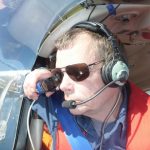 |
Cetacean Abundance Estimates
- Develop estimates of abundance and trends from sightings surveys as soon as possible.
- Monitor stock levels and trends in stocks of all cetaceans in the North Atlantic.
- Coordinate future sighting surveys and analyses of the results from such surveys in the North Atlantic.
Find all reports here and all meeting documents here.
|
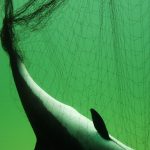 |
By-catch
- Identify all fisheries with potential by-catch of marine mammals.
- Review and evaluate current by-catch estimates for marine mammals in NAMMCO countries.
- If necessary, provide advice on improved data collection and estimation methods to obtain best
estimates of total by-catch over time.
Find all reports here and all meeting documents here.
|
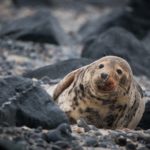 |
Coastal Seals
- Review national management plans for harbour and grey seals.
- Perform assessments for harbour and grey seals in the NAMMCO areas and when possible in
other North-Atlantic areas
- Develop a common management model for both species in the NAMMCO areas.
- To investigate the effects of non-hunting related anthropogenic stressors for both species,
including the cumulative impacts of global warming, by-catch, pollution and disturbance.
Find all reports here and all meeting documents here.
|
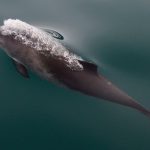 |
Harbour Porpoise
- To conduct a comprehensive assessment of the harbour porpoise throughout its range.
- To investigate the effects of non-hunting related anthropogenic stressors for the species,
including the cumulative impacts of global warming, by-catch, pollution and disturbance.
Find all reports here and all meeting documents here.
|
|
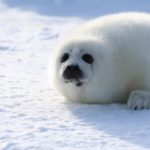
|
Harp and Hooded Seals
- To assess the status and harvest potential of the harp and hooded seal stocks.
- Evaluate new model developments.
- Explore the impact of proposed harvest strategies.
- To investigate the effects of non-hunting related anthropogenic stressors for both species,
including the cumulative impacts of global warming, by-catch, pollution and disturbance.
Find all reports here and all meeting documents here.
|
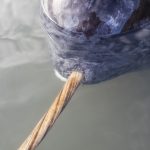 |
Narwhal and Beluga
- To provide or update the assessment in all areas of narwhals and belugas.
- To provide advice on the effects of human disturbance, including noise and shipping activities,
on the distribution, behaviour and conservation status of belugas and narwhals.
Find all reports here and all meeting documents here.
|
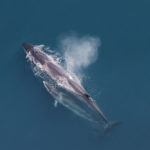 |
Large Whale Assessment
- To perform and update the assessments and provide management advice.
Find all reports here.
|
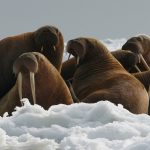 |
Walrus
- Provide an updated assessment of walruses, to include stock delineation, abundance, harvest,
stock status, and priorities for research.
- To investigate the effects of non-hunting related anthropogenic stressors for the species,
including the cumulative impacts of global warming, by-catch, pollution and disturbance.
Find all reports here and all meeting documents here.
|







